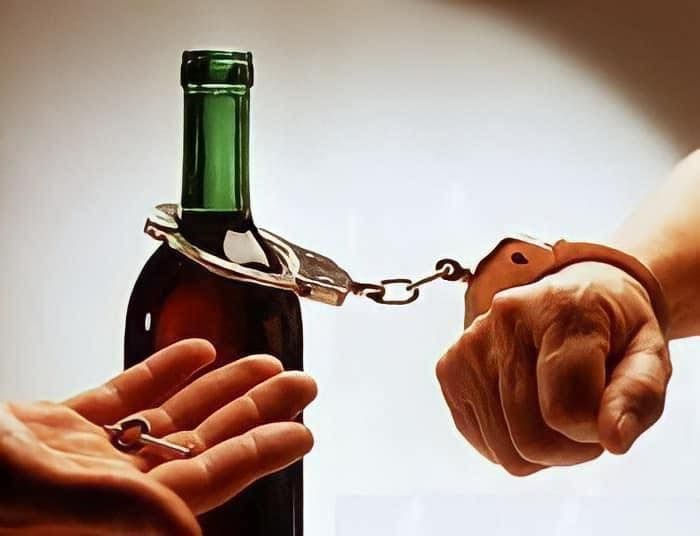Alcohol and Psychosis: Rare but Dangerous Links
- Collective Care

- Oct 10, 2025
- 3 min read
By Collective Care – Private Rehab Centre in Pune Maharashtra
At Collective Care, we believe understanding the hidden connections between alcohol and mental health is the first step toward lasting recovery. While alcohol is one of the most commonly used substances, few realize that in certain cases, it can lead to psychotic symptoms—a rare but dangerous complication known as alcohol-induced psychosis.
What Is Alcohol-Induced Psychosis?
Alcohol-induced psychosis occurs when long-term or heavy alcohol consumption disrupts brain chemistry, leading to hallucinations, delusions, disorganized thinking, or paranoia. These symptoms can appear during intoxication, withdrawal, or in rare cases, persist even after drinking has stopped.
At Collective Care, our clinical psychologists and psychiatrists explain that chronic alcohol abuse alters neurotransmitters such as dopamine, GABA, and glutamate. These changes can disturb brain functioning and increase the risk of psychotic episodes, especially during withdrawal.
Recognizing the Warning Signs
While not everyone who drinks excessively develops psychosis, the following signs should never be ignored:
Hearing or seeing things that aren’t there
Feeling suspicious or fearful without reason
Disorganized or confused speech
Paranoid thoughts or delusions
Mood swings, aggression, or withdrawal from loved ones
If you or someone you love shows these signs, seek immediate professional help. Early intervention saves lives.
Why Alcohol-Related Psychosis Is Dangerous
Psychosis related to alcohol use is more than a temporary disturbance—it can be a life-threatening mental health emergency. Individuals may experience intense fear, agitation, or self-harming behavior. Without treatment, psychosis can become chronic, interfere with recovery, or mask other mental health conditions such as bipolar disorder, schizophrenia, anxiety, or depression.
That’s why at Collective Care, we specialize in dual diagnosis treatment, addressing both addiction and co-occurring mental health concerns at the same time.
Dual Diagnosis Treatment at Collective Care
Our Dual Diagnosis Treatment Centre in India combines evidence-based psychiatry, psychotherapy, and holistic healing for people battling substance use disorders with anxiety, depression, or psychosis.
Our program includes:
Medical detox under psychiatric supervision
Evidence-based therapy for addiction such as CBT, DBT, and motivational interviewing
Medication management for psychosis, mood, and withdrawal
Family therapy and psychoeducation
Personalised rehab plans tailored to every individual’s needs
We believe recovery should never follow a one-size-fits-all model. Every treatment plan at Collective Care is individualized to match the person’s emotional, psychological, and physical health profile.
Holistic Rehabilitation with Yoga and Meditation
Healing the mind also requires healing the body and spirit. Our holistic rehabilitation program integrates:
Daily yoga sessions to reduce stress and stabilize mood
Mindfulness meditation for emotional regulation
Nutritional counselling and fitness programs to restore physical health
Art and music therapy for creative expression and trauma release
This balanced approach supports neurochemical recovery, reduces anxiety, and strengthens resilience against relapse.
Trauma-Informed Rehab Programs
Many individuals who develop addiction or psychosis have lived through significant emotional trauma. At Collective Care, our therapists follow a trauma-informed care model—ensuring safety, empathy, and respect in every interaction.
Our goal is not just to treat the symptoms, but to help individuals understand and heal from the roots of their pain.
Rehabilitation with Clinical Psychologists
Our rehabilitation program is supervised by a team of licensed clinical psychologists and psychiatrists specializing in addiction recovery for alcohol and drugs. They work collaboratively with counsellors, wellness coaches, and support staff to monitor progress and adjust treatment as recovery evolves.
Why Choose Collective Care?
As one of the leading private rehab centres in Maharashtra, Collective Care stands apart through:
Personalised rehab plans and continuous one-on-one support
Evidence-based therapy for addiction and mental health
Dual diagnosis expertise for complex co-occurring conditions
Holistic rehabilitation combining medical care with yoga, meditation, and mindfulness
Trauma-informed programs for compassionate recovery
Rehab centre with mental health expertise — psychiatrists, psychologists, and counsellors on site
Our mission is to bridge the gap between addiction recovery and mental health rehabilitation in India.
What Happens After Treatment?
Recovery doesn’t end at discharge. Collective Care provides aftercare and relapse prevention programs including:
Weekly therapy follow-ups
Peer support groups
Online counselling sessions
Family involvement and community reintegration
Our commitment to healing continues long after clients leave our centre—because recovery is a lifelong journey, not a temporary fix.
Alcohol and Mental Health: A Message of Hope
Alcohol-related psychosis is frightening, but recovery is absolutely possible. With timely psychiatric help, structured rehabilitation, and compassionate care, individuals can rebuild their lives and regain control of their mental health.
At Collective Care, we see transformation every day—stories of people who found clarity, peace, and purpose beyond addiction.
Your Healing Begins Here
If you or someone you love is struggling with alcohol dependence, psychosis, anxiety, or depression, reach out to Collective Care—your trusted rehab centre with mental health expertise in Maharashtra. Addiction Recovery for Alcohol and Drugs. Personalized and Evidence-Based Healing at Collective Care.


